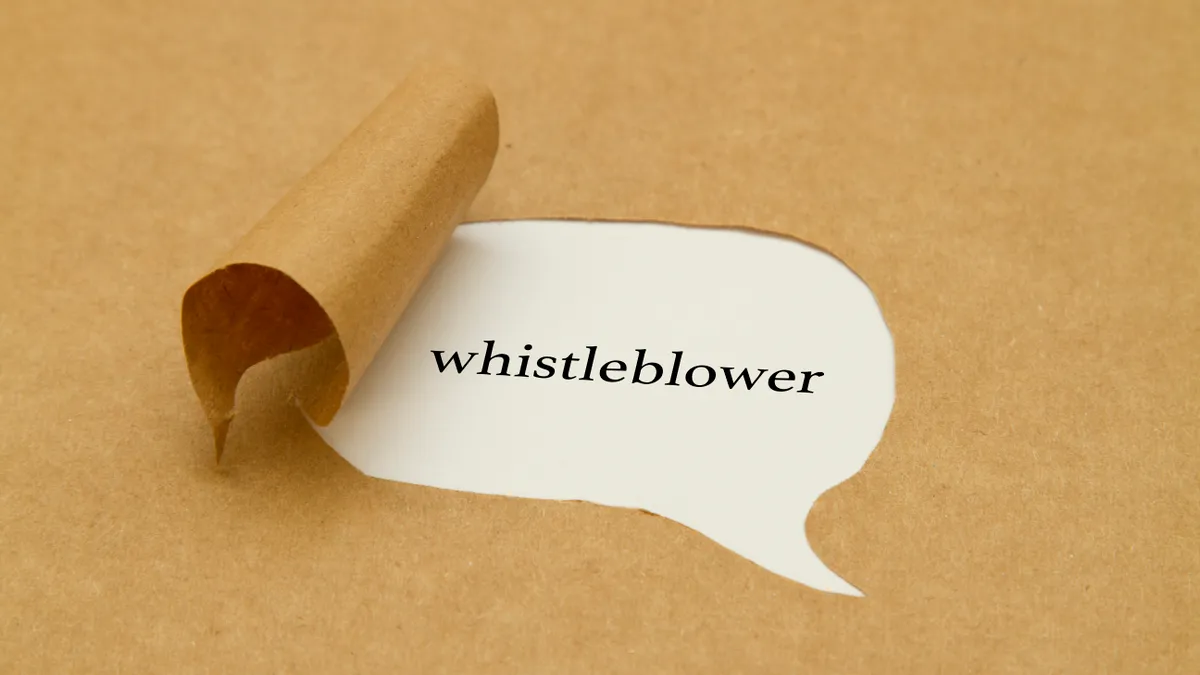The whistleblower program the Department of Justice announced last week will be built using its existing authority to pay awards for information leading to civil or criminal forfeitures, Deputy Attorney General Lisa Monaco says.
The goal is to close gaps left by the other federal whistleblower programs, including those administered by the Securities and Exchange Commission and the Commodity Futures Trading Commission. The IRS and the Financial Crimes Enforcement Network also have programs, and DOJ pays awards in qui tam actions that involve fraud against the federal government.
“These programs have proven indispensable — but they resemble a patchwork quilt that doesn’t cover the whole bed,” Monaco said March 7 at an ABA white collar crime conference in San Francisco. “They simply don’t address the full range of corporate and financial misconduct that the department prosecutes. So, we are filling these gaps.”
Up to this point, DOJ has been sporadic in paying awards, Monaco said, so the goal is to create a framework so they happen systematically.
“Today, we’re launching a 90-day sprint to develop and implement a pilot program, with a formal start date later this year,” she said.
To be eligible, the whistleblower will have to be the first in the door with information that the agency doesn’t already have. If the whistleblower is eligible under one of the other programs, like the SEC’s or the IRS’s, or as part of a qui tam action, the award will come under that authority. Only when there isn’t an existing authority would the award come under the DOJ program.
The agency wants information on any type of misconduct but its focus is on corruption cases, both foreign and domestic, and criminal abuse of the U.S. financial system.
“Maybe you work … at a fast-growing private startup,” she said, “and you discover the company's been paying bribes to get regulatory approvals and doctoring the books to hide the payments. If you come forward, you could get paid as part of the recovery from that criminal case.”
Monaco encouraged attorneys to keep whistleblower awards in mind if an employee of a company engaged in misconduct comes to them for advice.
“Maybe you’ve got a client at a private equity firm, and she discovers the CFO is forging underlying loan documents,” she said. “If your client reports it, a portion of the recovery could be hers.”
No awards will be paid until victims have been compensated, and whistleblowers can’t be involved in the misconduct.
The initiative is part of the agency’s broader effort to get insiders to come forward rather than hunker down and take a defensive position. Under this broader effort, an insider who is part of the misconduct, although not eligible for a whistleblower award, can still count on more lenient treatment, like a non-prosection agreement, if they come forward.
Monaco pointed to pilot programs the agency is operating to give non-prosecution agreements to insiders she called “at-fault individuals” who nevertheless disclose wrongdoing and cooperate against other, more culpable people within the company.
The alternative for insiders who don’t come forward is to get the book thrown at them. She mentioned as examples the CEOs of FTX and Binance, both of whom have been criminally convicted.
Those actions are on top of convictions of the chief executive officer and chief operating officer of Theranos, two managing directors of Goldman Sachs, and dozens of executives across a range of industries, she said. “All charged and convicted of federal crimes.”
“Companies can only act through individuals,” she said. “Our first priority has been — and will continue to be — individual accountability.”











